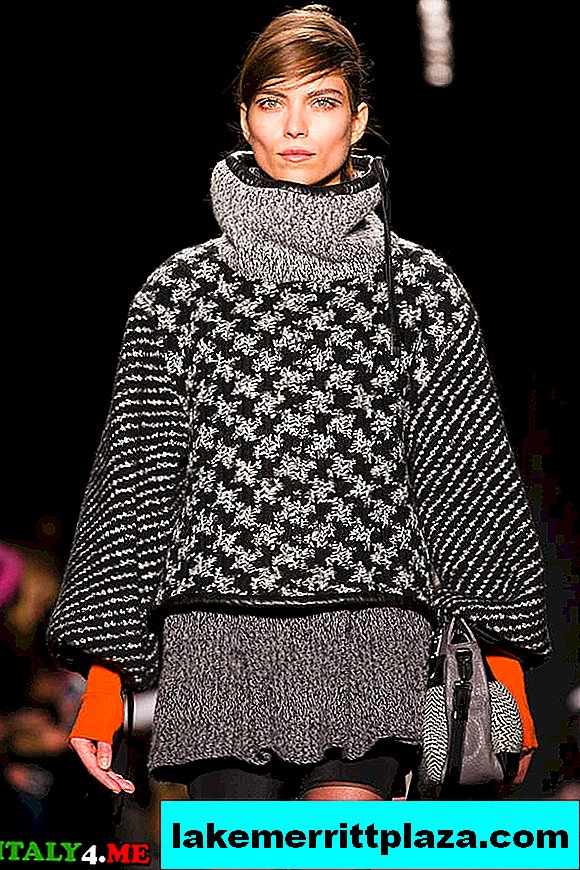Surprisingly, winter came even to Italy. By the standards of the Italians themselves, this year it is more than harsh. However, world-famous fashionistas are not discouraged by the inability to put on their favorite mini-dress. After all, fashion designers had foreseen such an option for the development of events and developed exquisite winter collections of clothes and accessories.
- In the photo: Donna Karan fashion show, a completely black suit is perfect for both work and going out, if complemented with suitable jewelry.

- (Outfit from Just Cavalli) For youth Just Cavalli offers an eccentric, but at the same time very warm look, consisting of a bright, dimensionless sweater and a woolen scarf.

- Yves Saitn Laurent designed a grunge day outfit with a chic classic woolen scarf.

- Want to wear a skirt and heels, but the temperature has dropped below zero? Victoria Beckham advises you to buy woolen knee-highs for this occasion, which will look wonderful with leather ankle boots.

- The super feminine, but perfectly protecting from the cold ensemble was presented at the Cacharel fashion show: a woolen dress with a high collar combined with very dense tights in pastel colors.

- You just need to look elegant, but the jacket you want to wear will not allow you to "survive" at a temperature outside the window? Follow the example of Celine models and put on a graceful cloak over a jacket that may well be woolen.

- For evenings with a black outfit, the idea comes from Chanel: combine a black mini dress with long gloves and boots above the knees.

- An anti-frost solution that will appeal to fans of the androgynous image was suggested by Dsquared2, releasing a Borsalino-style hat and long leather gloves on the catwalk.

- A zipper turtleneck, a knee-length skirt and delicious striped tights from Miu Miu will bring you back to the 70s of the last century. Performed in rich colors and crisp shapes, they are very very warm.

- Rock and glam are Rachel Zoe's cut-off gloves that make it easy for you to use your smartphone or tablet.

- Derek Lam extended the sleeve of a wool shirt to make you feel warm and comfortable all day.

- A sweater with a high collar in the winter season is a must. And the presented Rag & Bone looks very warm and cozy, and, apparently, it can be used instead of outerwear.

- Why not wear an elegant hat with a dark coat? The headgear from Ralph Lauren is feminine, chic and very warm.

- A long coat of boiled wool and leather gloves: a wonderful evening youth set presented at the Proenza Schouler show.























